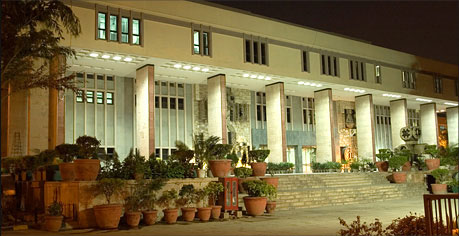Orders Passed Under Senior Citizens Act & Rules To Earmark Appellate Forum & Limitation Period In Order To Avoid Confusion: Delhi High Court

The Delhi High Court to resolve the confusion as to which orders passed under Maintenance and Welfare of Parents and Senior Citizens Act, 2007 (“Act”) or Delhi Maintenance & Welfare of Parents & Senior Citizens Rules, 2009 (“Rules”) are appealable to which forum and by whom has recently issued directions for adding a sentence at the end of every order related to appellate forum & period of limitation.
“The Act and the various Rules and Notifications thereto are not readily available to litigants, as also lawyers, in the form of a separate publication. This may be one of the causes for confusion in filing multiple writ petitions directly against the first order of the tribunal or, in the case of eviction, from the order of the Deputy Commissioner/DM. Lawyers and the litigating public ought to avail of the remedies available to them under the Act and the Rules”, Single Bench of Justice Pratibha M Singh noted.
In the present matter, the Petitioner has appealed against the impugned order dated February 8, 2021, passed by the District Magistrate (“DM”) under Rule 22 (3)(1) (i) of the Rules by which the Petitioner was evicted from premises bearing no. C-28, Mansa Ram Park, Uttam Nagar, New Delhi-59.
The Petitioner’s counsel concerning the maintainability of the petition submitted the same ought to be entertained since an appeal under the Act can only be filed by a senior citizen.
On the other hand, the respondent contended that the Petitioner should approach the Divisional Commissioner. As per the amendment dated December 19, 2016, the impugned order was appealable to the Divisional Commissioner under Rule 22 (3)(4) of the Rules.
With regards to the maintenance proceedings, the Bench observed that ADM or SDM of the concerned sub-division would be the Maintenance Tribunal u/s 7 of the Act. Further the Bench while relying on Naveen Kumar v. GNCTD & Ors. [W.P.(C) 1337/2020, decided on 5th February, 2020];Shri Amit Kumar v. Smt. Kiran Sharma & Anr. [W.P.(C) 106/2021, decided on 6th January, 2021];Sh. Shumir Oliver & Anr. v. GNCTD & Ors. [W.P.(C) 2857/2021, decided on 3rd March, 2021] & following the judgement passed by the Punjab & Haryana High Court in Paramjit Kumar Saroya v. The Union of India & Anr., 2014 SCC OnLine P&H 10864 observed that,
“Appeals by any affected party who may be aggrieved by an order of the Tribunal, as constituted under the Act and the Rules, would be liable to be entertained before the Appellate Tribunal. Thus, the procedure in respect of maintenance cases would be to first approach the ADM/SDM concerned and thereafter, the Appellate Tribunal which is presided over by the Deputy Commissioner of the concerned district.”
Concerning eviction proceedings, the Bench observed that a senior citizen could approach the DM/Deputy Commissioner seeking eviction of the son, daughter, or any other legal heir from his self-acquired property over which he/she enjoys rights on account of his non-maintenance and ill-treatment. Further, the Court placed reliance on the notification dated July 28, 2017, by which the term self-acquired was amended to include property of any kind.
“Thus, the senior citizen can approach the Deputy Commissioner/DM for eviction from any property over which he/she enjoys rights. The title of the senior citizen is checked. A report is submitted by the concerned SDM after verifying both the title as well as the facts pleaded. If the Deputy Commissioner/DM is satisfied, then notice is issued to the children/relatives whose eviction is sought and thereafter orders are passed.”, the Court noted.
By further relying on Rule 22(3)(4) of the Rules, the Court observed that in respect of eviction, the first forum would be the Deputy Commissioner/District Magistrate & that challenge to the DM’s or Deputy Commissioner’s order would lie before the Divisional Commissioner.
Thus, the Bench, while directing the petitioner to file an appeal against the impugned order to the Divisional Commissioner under Rule 22(3)(4) of the Rules, further directed for the addition of the following two sentences at the end of every order passed by the initial forum i.e., Tribunal u/s 7 of the Act & by the Deputy Commissioner/DM under Rule 23(3) of the Rules :
For Maintenance Cases
?The present order would be appealable, under Section 16 of the Maintenance and Welfare of Parents and Senior Citizens Act, 2007 read with Rule 16 of The Delhi Maintenance and Welfare of Parents and Senior Citizens Rules, 2009, to the Appellate Tribunal, presided over by the Deputy Commissioner of the concerned District. The period of limitation for filing of appeal is 60 days.?
For Eviction Cases
?The present order would be appealable under Rule 22(3)(4) of The Delhi Maintenance and Welfare of Parents and Senior Citizens Rules, 2009, as amended on 19th December, 2016 before the Divisional Commissioner, Delhi. The period of limitation for filing of appeal is 60 days.
“If the appeal is filed before the Divisional Commissioner within one week, the eviction order shall not be given effect to till the date the Divisional Commissioner considers the application for ad-interim relief in the appeal. The Divisional Commissioner shall initially decide the stay application, after hearing parties and thereafter proceed to adjudicate the Appeal on merits.”, the Court observed.
Case Title: Rakhi Sharma v. The State & Ors
Law Point/Statute Involved: Section 7,15 & 16 of Maintenance and Welfare of Parents and Senior Citizens Act, 2007 & Rule 3(2), 16, 22(3) & (4) of Delhi Maintenance & Welfare of Parents & Senior Citizens Rules, 2009
